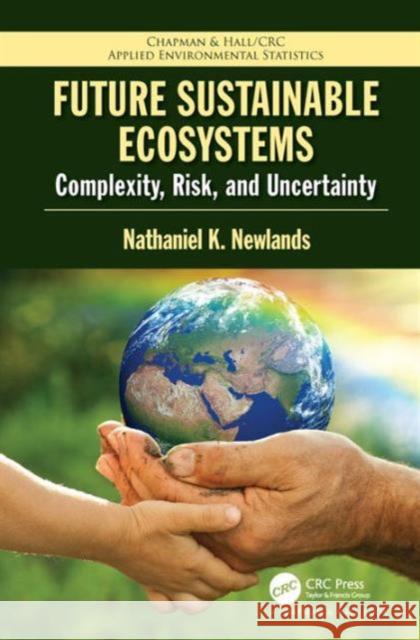Future Sustainable Ecosystems: Complexity, Risk, and Uncertainty » książka
Future Sustainable Ecosystems: Complexity, Risk, and Uncertainty
ISBN-13: 9781466582569 / Angielski / Twarda / 2016 / 410 str.
Future Sustainable Ecosystems: Complexity, Risk, and Uncertainty
ISBN-13: 9781466582569 / Angielski / Twarda / 2016 / 410 str.
(netto: 440,37 VAT: 5%)
Najniższa cena z 30 dni: 418,05
ok. 16-18 dni roboczych.
Darmowa dostawa!
Future Sustainable Ecosystems: Complexity, Risk, Uncertainty provides an interdisciplinary, integrative overview of environmental problem-solving using statistics. It shows how statistics can be used to solve diverse environmental and socio-economic problems involving food, water, energy scarcity, and climate change risks. It synthesizes interdisciplinary theory, concepts, definitions, models and findings involved in complex global sustainability problem-solving, making it an essential guide and reference. It includes real-world examples and applications making the book accessible to a broader interdisciplinary readership. Discussions include a broad, integrated perspective on sustainability, integrated risk, multi-scale changes and impacts taking place within ecosystems worldwide. State-of-the-art statistical techniques, including Bayesian hierarchical, spatio-temporal, agent-based and game-theoretic approaches are explored. The author then focuses on the real-world integration of observational and experimental data and its use within statistical models. The book clarifies how complex adaptive systems theory frames sustainability as a probabilistic (i.e., stochastic) problem, highlighting the importance of adaptive policy, science and institutional arrangements, for strengthening ecosystem adaptation and resilience. The author elucidates how we must transform our thinking, illuminating the benefits and opportunities offered by the integrative risk approach to innovation and learning in the Cognitive/Risk Era. The book highlights the importance of statistics in guiding, designing and delivering real-world solutions and helping to unravel the complex array of tradeoffs, uncertainties, inter-dependencies and unforeseen risks.











